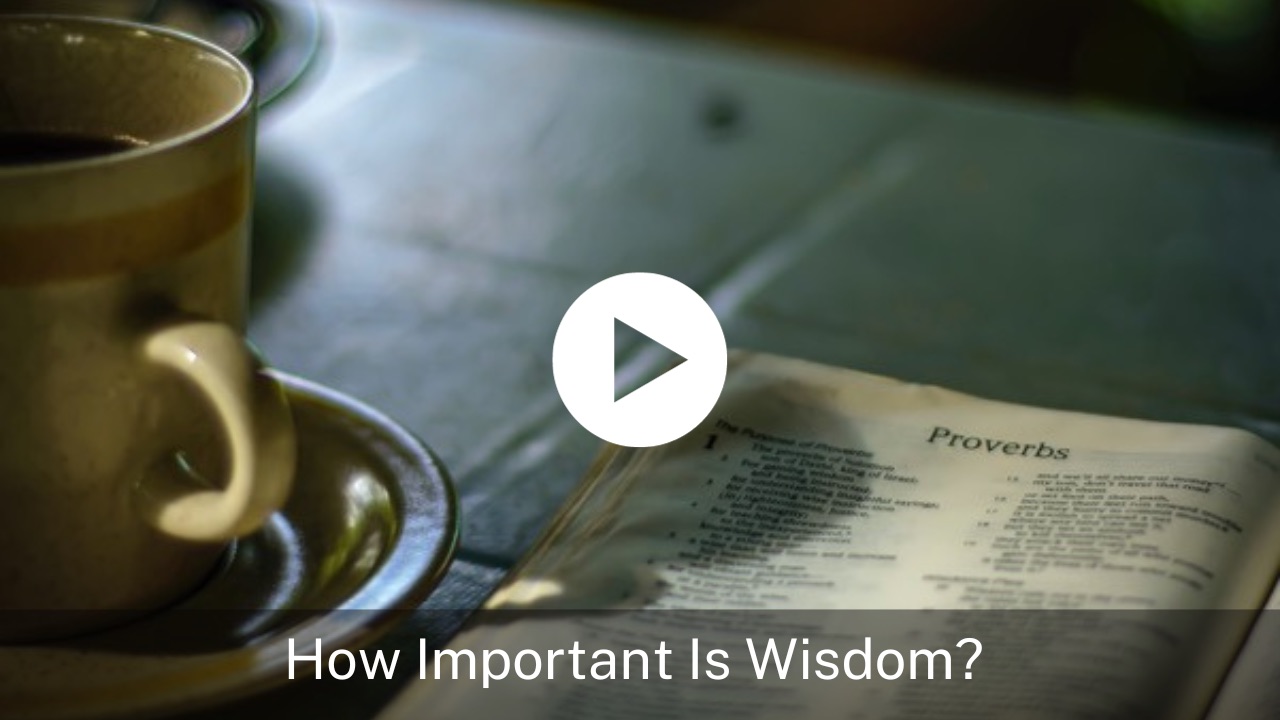How Important Is Wisdom?

There are many ways mentioned in the Bible about how a person may attain wisdom. There are also some simple attitudes, and ways of speaking with wisdom that we can apply to our lives, and receive positive outcomes.
An example of possessing wisdom would be in knowing when, what, and how to answer a matter. If what you say is delivered with a caring attitude, instead of a haughty, corrective attitude, it will be much more readily accepted. Also, the timing of when something is said is crucial.
- Proverbs 25:11, “A word fitly spoken is like apples of gold in pitchers of silver.”
- Proverbs 29:11, “A fool utters all his mind.” Talking less and listening more is always smart.
- Ecclesiastes 8:5, “A wise man’s heart discerns both time and judgment.”
Holding back our tongue is usually wise. Waiting, and being patient for the right moment will be received much more readily.
This next story reveals the wisdom of God:
In Daniel 1, Daniel and his three friends were told to eat the king’s food in order to fatten themselves up before their appearance with the king. Since they had been in prison, they would not have been eating too well. The prince of the eunuchs was required to be sure they were fattened up, or he would lose his head. However, Daniel didn’t want to defile himself with the king’s food and purposed him self not to eat it (v. 10). In the Old Testament, God instructed His people what to eat and what not to eat. Some foods were considered unclean, and were forbidden by God. The heathen king would have eaten those types of food. Daniel didn’t want to violate God’s laws, but also didn’t want to disobey the king’s command and lose his head, along with the prince in charge over him.
Daniel decided to ask if he could eat only vegetables. He had to ask with wisdom, as the man would normally respond, “Not even a possibility.” Daniel said to the prince, “Prove thy servants, I beseech thee, ten days; and let them give us vegetables to eat, and water to drink” (v. 12).
There are two points to notice. First, he asked for only a ten-day trial run, which would still leave enough time for the king’s food to be given if Daniel’s way of eating only vegetables didn’t work. This would have been in the mind of the prince, since he didn’t want to lose his head. Daniel showed consideration of him by asking for only the ten days. The prince had three years to fatten them up (v. 5). Daniel also had to have been in a favorable position with the prince of the eunuchs to even ask in the first place (v. 9), which he was. This was due to him having an excellent spirit (Daniel 5:12, 14; 6:3).
The second thing to notice in Daniel’s asking is that he said, “I beseech thee…” Beseech means “please” or “I beg you.” The attitude was not insistent in any way, but instead humble. All through the Bible the word, beseech is used by those with a humble attitude. Daniel asked the Lord and said, “I beseech thee…” (Daniel 9:16).
Paul said in 2 Corinthians 10:1, “Now I Paul myself beseech you by the meekness and gentleness of Christ, who in presence am base among you.”
Daniel asked with wisdom, and he was granted his request. Consideration of others, and a humble attitude is showing wisdom.
- Proverbs 12:14, “A man shall be satisfied with good by the fruit of his mouth.”
- Proverbs15:1-2, “A soft answer turns away wrath: but grievous words stir up anger. The tongue of the wise useth knowledge aright.”
- Proverbs19:22, “Kindness makes a man attractive.”
These are simple, but profound ways we can display wisdom in our lives and achieve a positive result.
Copyright 2007-2023 Soul Choice Ministries – All Rights Reserved
By Bill Wiese, author of 23 Minutes in Hell
